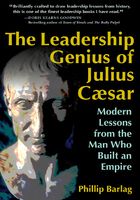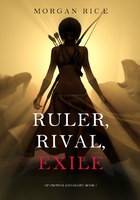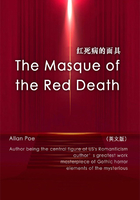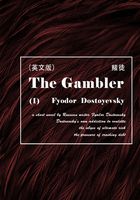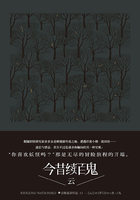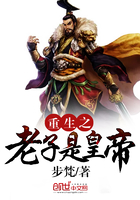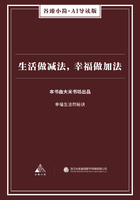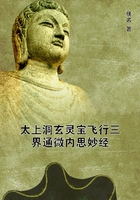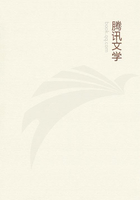The captive who was the source of so much alarm to the cardinal and whose means of escape disturbed the repose of the whole court, was wholly unconscious of the terror he caused at the Palais Royal.
He had found himself so strictly guarded that he soon perceived the fruitlessness of any attempt at escape. His vengeance, therefore, consisted in coining curses on the head of Mazarin; he even tried to make some verses on him, but soon gave up the attempt, for Monsieur de Beaufort had not only not received from Heaven the gift of versifying, he had the greatest difficulty in expressing himself in prose.
The duke was the grandson of Henry VI. and Gabrielle d'Estrees—as good-natured, as brave, as proud, and above all, as Gascon as his ancestor, but less elaborately educated. After having been for some time after the death of Louis XIII. the favorite, the confidant, the first man, in short, at the court, he had been obliged to yield his place to Mazarin and so became the second in influence and favor; and eventually, as he was stupid enough to be vexed at this change of position, the queen had had him arrested and sent to Vincennes in charge of Guitant, who made his appearance in these pages in the beginning of this history and whom we shall see again. It is understood, of course, that when we say "the queen," Mazarin is meant.
During the five years of this seclusion, which would have improved and matured the intellect of any other man, M. de Beaufort, had he not affected to brave the cardinal, despise princes, and walk alone without adherents or disciples, would either have regained his liberty or made partisans. But these considerations never occurred to the duke and every day the cardinal received fresh accounts of him which were as unpleasant as possible to the minister.
After having failed in poetry, Monsieur de Beaufort tried drawing. He drew portraits, with a piece of coal, of the cardinal; and as his talents did not enable him to produce a very good likeness, he wrote under the picture that there might be little doubt regarding the original: "Portrait of the Illustrious Coxcomb, Mazarin." Monsieur de Chavigny, the governor of Vincennes, waited upon the duke to request that he would amuse himself in some other way, or that at all events, if he drew likenesses, he would not put mottoes underneath them. The next day the prisoner's room was full of pictures and mottoes. Monsieur de Beaufort, in common with many other prisoners, was bent upon doing things that were prohibited; and the only resource the governor had was, one day when the duke was playing at tennis, to efface all these drawings, consisting chiefly of profiles. M. de Beaufort did not venture to draw the cardinal's fat face.
The duke thanked Monsieur de Chavigny for having, as he said, cleaned his drawing-paper for him; he then divided the walls of his room into compartments and dedicated each of these compartments to some incident in Mazarin's life. In one was depicted the "Illustrious Coxcomb" receiving a shower of blows from Cardinal Bentivoglio, whose servant he had been; another, the "Illustrious Mazarin" acting the part of Ignatius Loyola in a tragedy of that name; a third, the "Illustrious Mazarin" stealing the portfolio of prime minister from Monsieur de Chavigny, who had expected to have it; a fourth, the "Illustrious Coxcomb Mazarin" refusing to give Laporte, the young king's valet, clean sheets, and saving that "it was quite enough for the king of France to have clean sheets every three months."
The governor, of course, thought proper to threaten his prisoner that if he did not give up drawing such pictures he should be obliged to deprive him of all the means of amusing himself in that manner. To this Monsieur de Beaufort replied that since every opportunity of distinguishing himself in arms was taken from him, he wished to make himself celebrated in the arts; since he could not be a Bayard, he would become a Raphael or a Michael Angelo. Nevertheless, one day when Monsieur de Beaufort was walking in the meadow his fire was put out, his charcoal all removed, taken away; and thus his means of drawing utterly destroyed.
The poor duke swore, fell into a rage, yelled, and declared that they wished to starve him to death as they had starved the Marechal Ornano and the Grand Prior of Vendome; but he refused to promise that he would not make any more drawings and remained without any fire in the room all the winter.
His next act was to purchase a dog from one of his keepers. With this animal, which he called Pistache, he was often shut up for hours alone, superintending, as every one supposed, its education. At last, when Pistache was sufficiently well trained, Monsieur de Beaufort invited the governor and officers of Vincennes to attend a representation which he was going to have in his apartment.
The party assembled, the room was lighted with waxlights, and the prisoner, with a bit of plaster he had taken out of the wall of his room, had traced a long white line, representing a cord, on the floor. Pistache, on a signal from his master, placed himself on this line, raised himself on his hind paws, and holding in his front paws a wand with which clothes used to be beaten, he began to dance upon the line with as many contortions as a rope-dancer. Having been several times up and down it, he gave the wand back to his master and began without hesitation to perform the same evolutions over again.
The intelligent creature was received with loud applause.
The first part of the entertainment being concluded Pistache was desired to say what o'clock it was; he was shown Monsieur de Chavigny's watch; it was then half-past six; the dog raised and dropped his paw six times; the seventh he let it remain upraised. Nothing could be better done; a sun-dial could not have shown the hour with greater precision.
Then the question was put to him who was the best jailer in all the prisons in France.
The dog performed three evolutions around the circle and laid himself, with the deepest respect, at the feet of Monsieur de Chavigny, who at first seemed inclined to like the joke and laughed long and loud, but a frown succeeded, and he bit his lips with vexation.
Then the duke put to Pistache this difficult question, who was the greatest thief in the world?
Pistache went again around the circle, but stopped at no one, and at last went to the door and began to scratch and bark.
"See, gentlemen," said M. de Beaufort, "this wonderful animal, not finding here what I ask for, seeks it out of doors; you shall, however, have his answer. Pistache, my friend, come here. Is not the greatest thief in the world, Monsieur (the king's secretary) Le Camus, who came to Paris with twenty francs in his pocket and who now possesses ten millions?"
The dog shook his head.
"Then is it not," resumed the duke, "the Superintendent Emery, who gave his son, when he was married, three hundred thousand francs and a house, compared to which the Tuileries are a heap of ruins and the Louvre a paltry building?"
The dog again shook his head as if to say "no."
"Then," said the prisoner, "let's think who it can be. Can it be, can it possibly be, the 'Illustrious Coxcomb, Mazarin de Piscina,' hey?"
Pistache made violent signs that it was, by raising and lowering his head eight or ten times successively.
"Gentlemen, you see," said the duke to those present, who dared not even smile, "that it is the 'Illustrious Coxcomb' who is the greatest thief in the world; at least, according to Pistache."
"Let us go on to another of his exercises."
"Gentlemen!"—there was a profound silence in the room when the duke again addressed them—"do you not remember that the Duc de Guise taught all the dogs in Paris to jump for Mademoiselle de Pons, whom he styled 'the fairest of the fair?' Pistache is going to show you how superior he is to all other dogs. Monsieur de Chavigny, be so good as to lend me your cane."
Monsieur de Chavigny handed his cane to Monsieur de Beaufort. Monsieur de Beaufort placed it horizontally at the height of one foot.
"Now, Pistache, my good dog, jump the height of this cane for Madame de Montbazon."
"But," interposed Monsieur de Chavigny, "it seems to me that Pistache is only doing what other dogs have done when they jumped for Mademoiselle de Pons."
"Stop," said the duke, "Pistache, jump for the queen." And he raised his cane six inches higher.
The dog sprang, and in spite of the height jumped lightly over it.
"And now," said the duke, raising it still six inches higher, "jump for the king."
The dog obeyed and jumped quickly over the cane.
"Now, then," said the duke, and as he spoke, lowered the cane almost level with the ground; "Pistache, my friend, jump for the 'Illustrious Coxcomb, Mazarin de Piscina.'"
The dog turned his back to the cane.
"What," asked the duke, "what do you mean?" and he gave him the cane again, first making a semicircle from the head to the tail of Pistache. "Jump then, Monsieur Pistache."
But Pistache, as at first, turned round on his legs and stood with his back to the cane.
Monsieur de Beaufort made the experiment a third time, but by this time Pistache's patience was exhausted; he threw himself furiously upon the cane, wrested it from the hands of the prince and broke it with his teeth.
Monsieur de Beaufort took the pieces out of his mouth and presented them with great formality to Monsieur de Chavigny, saying that for that evening the entertainment was ended, but in three months it should be repeated, when Pistache would have learned a few new tricks.
Three days afterward Pistache was found dead—poisoned.
Then the duke said openly that his dog had been killed by a drug with which they meant to poison him; and one day after dinner he went to bed, calling out that he had pains in his stomach and that Mazarin had poisoned him.
This fresh impertinence reached the ears of the cardinal and alarmed him greatly. The donjon of Vincennes was considered very unhealthy and Madame de Rambouillet had said that the room in which the Marechal Ornano and the Grand Prior de Vendome had died was worth its weight in arsenic—a bon mot which had great success. So it was ordered the prisoner was henceforth to eat nothing that had not previously been tasted, and La Ramee was in consequence placed near him as taster.
Every kind of revenge was practiced upon the duke by the governor in return for the insults of the innocent Pistache. De Chavigny, who, according to report, was a son of Richelieu's, and had been a creature of the late cardinal's, understood tyranny. He took from the duke all the steel knives and silver forks and replaced them with silver knives and wooden forks, pretending that as he had been informed that the duke was to pass all his life at Vincennes, he was afraid of his prisoner attempting suicide. A fortnight afterward the duke, going to the tennis court, found two rows of trees about the size of his little finger planted by the roadside; he asked what they were for and was told that they were to shade him from the sun on some future day. One morning the gardener went to him and told him, as if to please him, that he was going to plant a bed of asparagus for his especial use. Now, since, as every one knows, asparagus takes four years in coming to perfection, this civility infuriated Monsieur de Beaufort.
At last his patience was exhausted. He assembled his keepers, and notwithstanding his well-known difficulty of utterance, addressed them as follows:
"Gentlemen! will you permit a grandson of Henry IV. to be overwhelmed with insults and ignominy?
"Odds fish! as my grandfather used to say, I once reigned in Paris! do you know that? I had the king and Monsieur the whole of one day in my care. The queen at that time liked me and called me the most honest man in the kingdom. Gentlemen and citizens, set me free; I shall go to the Louvre and strangle Mazarin. You shall be my body-guard. I will make you all captains, with good pensions! Odds fish! On! march forward!"
But eloquent as he might be, the eloquence of the grandson of Henry IV. did not touch those hearts of stone; not one man stirred, so Monsieur de Beaufort was obliged to be satisfied with calling them all kinds of rascals underneath the sun.
Sometimes, when Monsieur de Chavigny paid him a visit, the duke used to ask him what he should think if he saw an army of Parisians, all fully armed, appear at Vincennes to deliver him from prison.
"My lord," answered De Chavigny, with a low bow, "I have on the ramparts twenty pieces of artillery and in my casemates thirty thousand guns. I should bombard the troops till not one grain of gunpowder was unexploded."
"Yes, but after you had fired off your thirty thousand guns they would take the donjon; the donjon being taken, I should be obliged to let them hang you—at which I should be most unhappy, certainly."
And in his turn the duke bowed low to Monsieur de Chavigny.
"For myself, on the other hand, my lord," returned the governor, "when the first rebel should pass the threshold of my postern doors I should be obliged to kill you with my own hand, since you were confided peculiarly to my care and as I am obliged to give you up, dead or alive."
And once more he bowed low before his highness.
These bitter-sweet pleasantries lasted ten minutes, sometimes longer, but always finished thus:
Monsieur de Chavigny, turning toward the door, used to call out: "Halloo! La Ramee!"
La Ramee came into the room.
"La Ramee, I recommend Monsieur le Duc to you, particularly; treat him as a man of his rank and family ought to be treated; that is, never leave him alone an instant."
La Ramee became, therefore, the duke's dinner guest by compulsion—an eternal keeper, the shadow of his person; but La Ramee—gay, frank, convivial, fond of play, a great hand at tennis, had one defect in the duke's eyes—his incorruptibility.
Now, although La Ramee appreciated, as of a certain value, the honor of being shut up with a prisoner of so great importance, still the pleasure of living in intimacy with the grandson of Henry IV. hardly compensated for the loss of that which he had experienced in going from time to time to visit his family.
One may be a jailer or a keeper and at the same time a good father and husband. La Ramee adored his wife and children, whom now he could only catch a glimpse of from the top of the wall, when in order to please him they used to walk on the opposite side of the moat. 'Twas too brief an enjoyment, and La Ramee felt that the gayety of heart he had regarded as the cause of health (of which it was perhaps rather the result) would not long survive such a mode of life.
He accepted, therefore, with delight, an offer made to him by his friend the steward of the Duc de Grammont, to give him a substitute; he also spoke of it to Monsieur de Chavigny, who promised that he would not oppose it in any way—that is, if he approved of the person proposed.
We consider it useless to draw a physical or moral portrait of Grimaud; if, as we hope, our readers have not wholly forgotten the first part of this work, they must have preserved a clear idea of that estimable individual, who is wholly unchanged, except that he is twenty years older, an advance in life that has made him only more silent; although, since the change that had been working in himself, Athos had given Grimaud permission to speak.
But Grimaud had for twelve or fifteen years preserved habitual silence, and a habit of fifteen or twenty years' duration becomes second nature.

